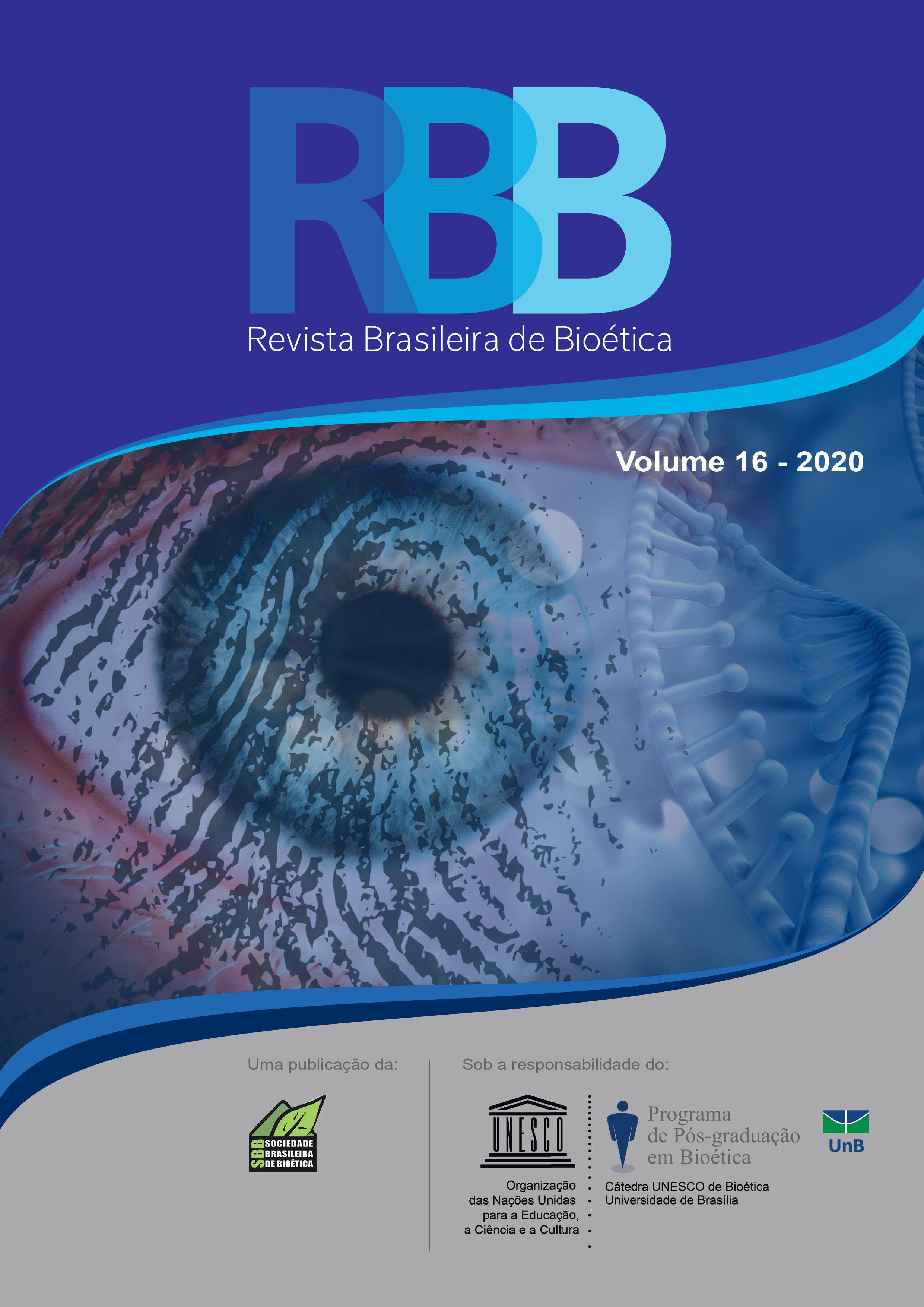Social-Environmental Dimension of the UNESCO Declaration of Bioethics in the 2030 Agenda - Environmental Bioethics and Develo- pment Refugees
DOI:
https://doi.org/10.26512/rbb.v16.2020.33658Keywords:
Agenda 2030. Environmental Bioethics. Capacity Theory. Development Refugees.Abstract
The article focuses on a literature review of AGENDA 2030,
from the socio-environmental perspective of Environmental Bioethics. With a focus on bioethics, the text develops a multidisciplinary study of the environmental asymmetries observed in post-modernity in relation o the vulnerability of populations. The theoretical framework of the study uses the “Social Theory of Focus on Capabilities” whose substrate of the existential minimum of human potential is interrelated with themes that permeate everyday issues of global magnitude in the context of sustainable development. This context is related to some theoretical
references explained in the Universal Declaration on Bioethics and Human Rights of UNESCO (UDBDH) that are in line with Sustainable Development and included in the Millennium Goals produced by the UN in the so-called AGENDA 2030. The study also supports the debate about the role of the State regarding its responsibility in facing
emerging situations found in vulnerable groups - the “development refugees” - as a result of socio-nvironmental problems.
Downloads
References
Almeida AWB. Refugiados do desenvolvimento: os deslocamentos compulsórios de índios e camponeses e a ideologia da modernização. Travessia, 1996; 20(25):30-35 . Acessível em: <http://www.scielosp.org/scielo.php?script=sci_nlinks&pi-d=S1413-8123201400100402300010&lng=en> .
Brasil. Constituição da República Federativa do Brasil, 1988. Brasília, DF: Senado Federal; 1988.
Giongo CR, Mendes J, Werlang R. Refugiados do desenvolvimento: naturalização do sofrimento das populações afetadas pelas usinas hidrelétricas. Rev Social. 2017; 19(40)124-145.
Jonas H. O Princípio da Responsabilidade: ensaio de uma ética para a civilização tecnológica. Editora PUC-Rio, 2006.
Nussbaum MC. Fronteiras da justiça: deficiência, nacionalidade, pertencimento à espécie. Tradução de Susana de Castro. São Paulo: Editora WMF Martins Fontes, 2013.
ONU. Transforming our world: the 2030 Agenda for Sustainable Development. New York, 2015. Acessível em: [http://sustainabledevelopment.un.org] acesso em 01/10/2019.
Potter VR. Bioética: ponte para o futuro. Tradução de Diego Carlos Zanella. São Paulo: Edições Loyola, 2016.
Sganzerla A, Renk VE, Rauli PMF (organizadores). Bioética Ambiental. Curitiba: PUCPRESS, 2018.
The Uniplanet. A Terra de Pais para Filhos, 2012. Acessível em: http://www.theunipla-net.com/2012/01/terra-de-pais-para-filhos.html.
UNESCO. Declaração Universal sobre Bioética e Direitos Humanos da Unesco. Tradução brasileira: Tapajós A, Prado MM, Garrafa V. Brasília: Universidade de Brasília/Cátedra Unesco de Bioética; 2005.
Unesco. United Nations Educational. Scientific and Cultural Organization. Universal Unesco and Sustainable Development Goals. Assecível em: https://en.unesco.org/Sustainabledevelopmentgoals.
WHO. World Health Organization. The 2030 Agenda: A New Impetus for Health Moni-toring, 2016. Acessível em: https://www.who.int/gho/publications/world_health_statis-tics/2016/EN_WHS2016_Chapter1.pdf?ua=1.
Downloads
Published
How to Cite
Issue
Section
License
Copyright (c) 2021 Revista Brasileira de Bioética

This work is licensed under a Creative Commons Attribution-NonCommercial-ShareAlike 4.0 International License.



